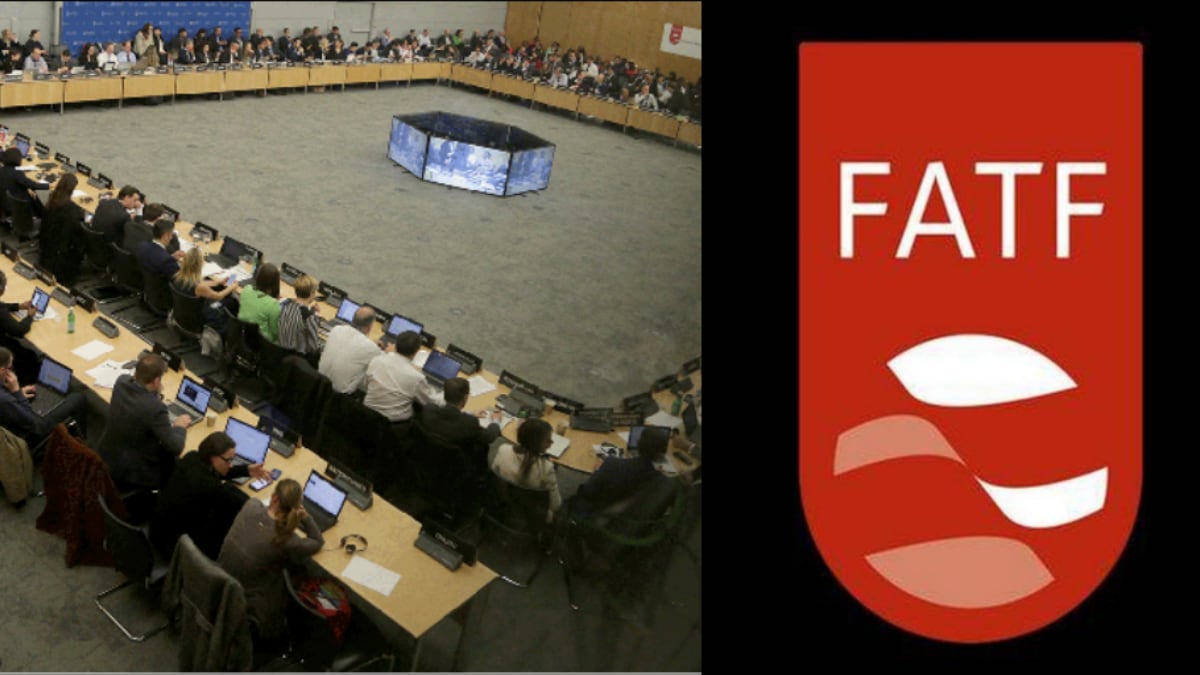PARIS: Financial Action Task Force (FATF) has announced on Thursday that Pakistan will remain on its grey list.
Pakistan has been on the grey list for some deficiencies in its counter-terror financing and anti-money laundering regimes since June 2018.
Announcing the decision, FATF President Dr Marcus Pleyer on Thursday said Pakistan had to complete two concurrent action plans with a total of 34 items. “It has now addressed or largely addressed 30 of the items,” he noted
Its most recent action plan from June this year, which largely focused on money laundering deficiencies, was issued after the FATF’s regional partner — the Asia Pacific Group — identified a number of serious issues.
“Overall, Pakistan is making good progress on this new action plan. Four out of the seven items are now addressed or largely addressed.
He said that this included showing that financial supervisors are conducting on-site and off-site checking on non-financial sector businesses and enacting legislative amendments to improve international cooperation.
Commenting on the action plan devised in 2018 which focused on terror financing, the FATF president said Pakistan was still assessed to have largely addressed 26 out of 27 items.
“Pakistan has taken a number of important steps, but needs to further demonstrate that investigations and prosecutions are being pursued against the senior leadership of UN designated terror groups,” he said.
All these changes are about helping authorities stop corruption, preventing terrorism and organised criminals from benefitting from their crimes, he said, thanking the government for their continued strong commitment to the process.
Responding to a question about whether Pakistan would be blacklisted for its failure to act against those on the UN terrorism list, Dr Pleyer said that the country had completed 30 items out of 34 on two action plans.
This shows the clear commitment of the Pakistani government so there is no discussion on blacklisting Pakistan and the FATF urges the country to address the remaining four items, he said, adding that the government was cooperating with the financial watchdog.
To a question regarding an Indian minister’s claims that the Modi government had ensured that Pakistan remained on the ‘grey list’, Dr Pleyer said that the FATF is a technical body and it takes its decisions by consensus so it’s not only one country that makes decisions.
Following the last plenary session in July, India’s Minister for External Affairs S Jaishankar said the Modi-led Bhartiya Janata Party (BJP) government had ensured that Pakistan remained on the FATF grey list.
“Due to us, Pakistan is under the lens of FATF and it was kept in the grey list,” Jaishankar was quoted as saying while addressing a virtual training programme on foreign policy for BJP leaders.
Refusing to comment on the Indian’s minister’s remarks, Dr Pleyer said that the FATF consists of 39 jurisdictions and the decisions on Pakistan are all taken by consensus.
Turkey, Jordan and Mali placed on grey list
Commenting on the various other decisions taken during the plenary meeting, the FATF president said that Botswana and Mauritius had been taken out of the financial watchdog’s grey list.
He said that Zimbabwe had completed its action plan and was awaiting on-site inspection, which would be carried out once the Covid-19 situation allowed.
Dr Pleyer also announced that Jordan, Mali and Turkey had been added to the list and had all agreed to action plans.
He said that an assessment was carried out on Turkey in 2019 which outlined serious issues regarding money laundering and terror financing. “Turkey has made progress in some areas, but issues remain,” he said, adding that it needed to show it is effectively addressing money laundering cases and terror financing.
‘FATF has recognised Pakistan’s progress’
In a statement, the Finance Division said that the FATF had recognised the “considerable progress” made by Pakistan on both the action plans.
The statement said that Pakistan had completed four of the seven items on the 2021 action plan, adding that these were completed “much before” the timelines prescribed by the FATF. It said that progress on the remaining three items was “well underway” and the aim was to complete them ahead of the timelines set by the financial watchdog.
“The action items that have been completed include amendments in the Mutual Legal Assistance Act, 2020, AML/CFT [anti-money laundering/combating the financing of terrorism] supervision of designated non-financial businesses and professions (DNFBPs), transparency of beneficial ownership information and implementation of targeted financial sanctions for proliferation finance by DNFBPs,” the statement said.
The remaining items in the 2021 action plan include investigation and prosecution of money laundering cases, confiscation of assets and UN listings, it added.
Regarding the single item remaining on the 2018 action plan, the Finance Division said that Pakistan had submitted a comprehensive progress report in this regard.
“The FATF acknowledged Pakistan’s continued political commitment, which led to significant progress across a comprehensive CFT action plan and encouraged Pakistan to report further progress on investigation and prosecution,” the statement said.
The Finance Division noted that “considerable work” has been carried out on the remaining items of both action plans, adding that the FATF will review Pakistan’s progress in February 2022.

